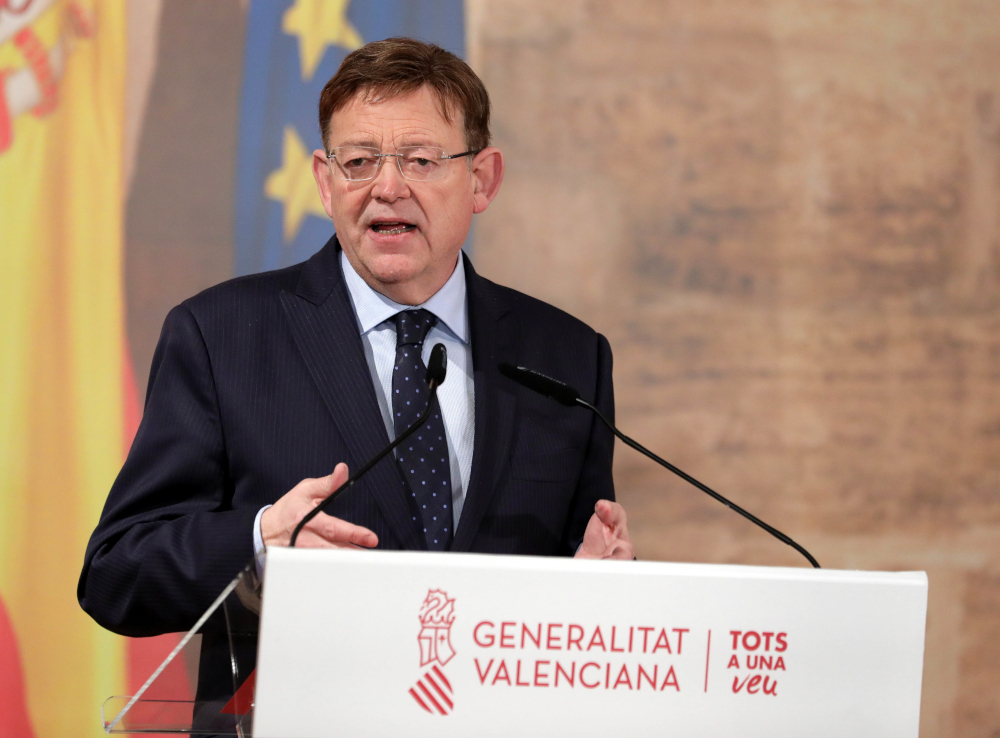Valencia seeks to maintain night curfew beyond May 9th when state of alarm expires
The Generalitat has sought approval from the High Court to maintain a modified night curfew which will start at midnight.

Friday 7th May 2021 – MIKE SMITH
With the national state of alarm due to expire this Sunday after more than six months since its declaration last November, regional governments across Spain have been looking at their options to maintain some of the necessary measures to control the spread of the COVID-19 infection for many parts of the country are still nowhere near the declared threshold for halting the spread of the virus.
The Generalitat Valenciana is one of those regional authorities who have continued to express their commitment to not lowering its guard too early, as it has done so for some time with positive consequences; the region continues to have the lowest infection spread in Spain and one of the lowest in Europe. Therefore, it has eyed the approach of the end of the national state of alarm with some caution and on Thursday, the president of the Generalitat, Ximo Puig, confirmed that his government will be looking to maintain the night curfew beyond May 9th as well as other existing restrictions, albeit with some modifications.
The legal basis on which the regional government can maintain such measures is the Public Health Act of 1986 which permits autonomous communities to impose measures to halt the spread of an infection and Puig has confirmed that the intention of the Generalitat have been delivered to the High Court of Justice in the Comunidad Valenciana for approval.
Studies are being conducted on the easing of several measures due to the continued low risk of spreading the infection – the Comunidad Valenciana has been below the 50 mark in 14-day IA rate (number of infections per 100,000 inhabitants) since mid-March, substantially lower than the national rate – and it is expected that the Generalitat will modify the night curfew so that it begins at 12 midnight rather than 10.00pm as it does now. However, it is expected that bars and restaurants will have to close their doors at 11.00pm.
The hospitality sector has long called on the regional government to ease measures and help them rebuild their businesses, demanding that the capacity for interior spaces be increased to two-thirds and allow them to open until midnight. However, studies carried out by the European Union have shown that restrictions on night movement – such as a curfew – have helped to reduce the spread of COVID-19 by around 15%. Thus, should the High Court in Valencia not support a night curfew, it would be within the legal right of the regional government to impose restrictive opening hours on the hospitality sector to reduce movement at night. However, that might not be necessary; the High Court in the Balearic Islands has recently given legal blessing to a night curfew on the archipelago.
With the end of the national state of alarm less than 48 hours away, the Generalitat will be speeding up its procedures for the declaration of new measures which will enter into force on Sunday 9th May and the Interdepartment Board for the Management and Preventation of COVID-19 are due to meet on Saturday to confirm those measures which will then be announced formally by the President.
Two things are almost certain: the perimetral closure of the Comunidad Valenciana will be lifted on Sunday after more than six months; and the maximum number of people who can gather together will be increased to ten in both public and private spaces, although the latter will still be restricted to two family units.
More to follow …




